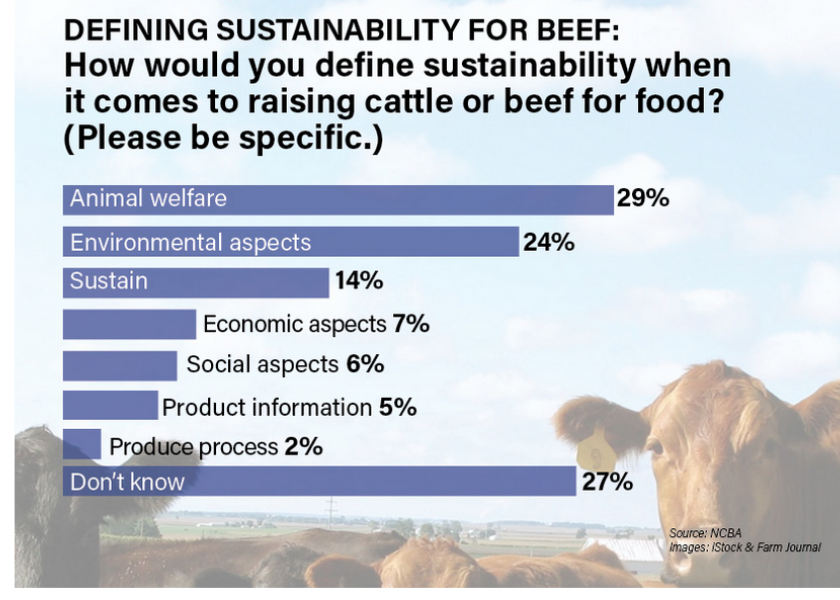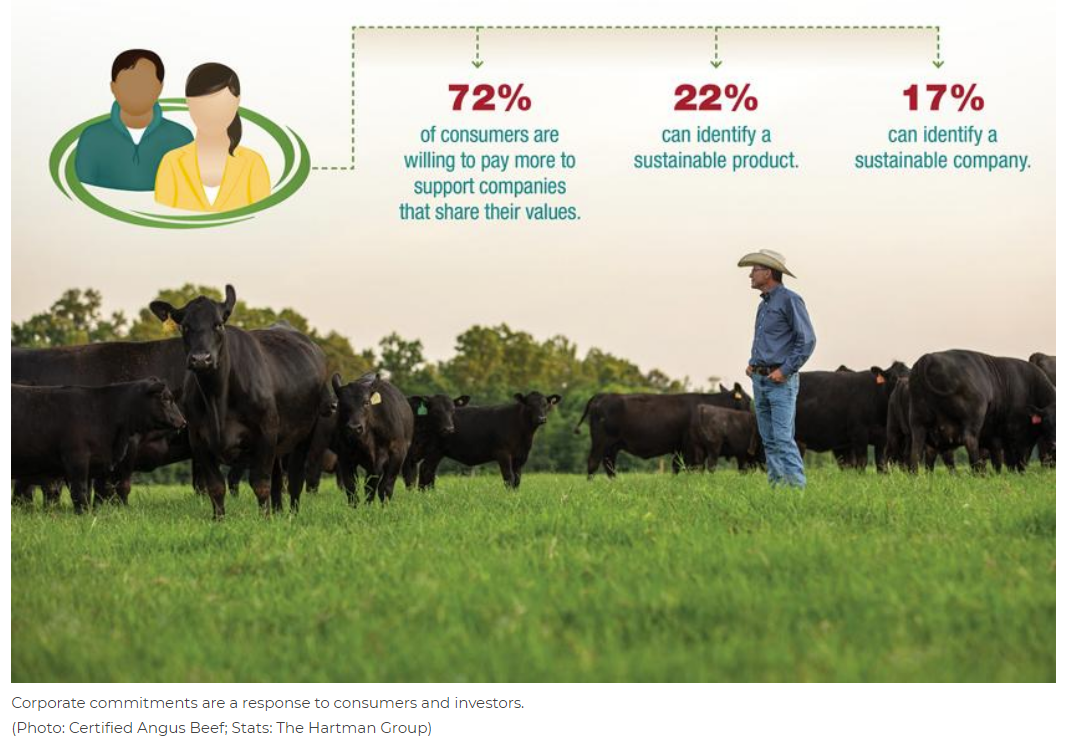Sustainability is not Going Away. What are You Going to do With It?

Rhonda Brooks is editor of Bovine Veterinarian.
Amarillo By Morning, a big hit by mega star George Strait back in the day, has been playing in my head all week. You probably know the song. If you don’t, it’s worth a listen on YouTube.
I was in Amarillo for a couple of days this past week to attend a sustainability media program hosted by Merck Animal Health. The company has its sights firmly locked in on sustainability and how to help its customers, both veterinarians and producers, adopt sustainable practices.
I would be remiss if I did not add that most other animal health companies — many of which advertise with Bovine Veterinarian, including Boehringer Ingelheim, Elanco, Phibro, U.S. Vet, Virbac and Zoetis, along with others — are also focused on sustainability and what it means to their customers.
“Not A Fad”
I believe Ben Weinheimer, president and CEO of the Texas Cattle Feeders Association, shared an important fact at the meeting when he said, “We’ve been at this topic long enough to know now it’s not a fad.”

That’s not the case with sustainability. I’m on board with the concept, because I believe it’s a good thing for animals and our customers, U.S. consumers, and for those of us working in the livestock industry, as well.
Instead, the challenge for me is what do I do with the concept of sustainability? How do I implement it? It’s the old but real issue of “the devil’s in the details.”
Please know I am not throwing shade or pointing any fingers at anyone regarding this topic, especially veterinarians.
I can truly say every bovine veterinarian I have worked with has demonstrated, in word and deed, that they are working diligently to use practices that take animal health and well-being into consideration, first and foremost.
Self-Assessment Can Help
I’m simply wrestling with the sustainability concept. Working out the details is a messy undertaking at times (i.e. For instance, I took three flights to and from Amarillo this week.).
Perhaps you have similar struggles?
If so, take a few minutes to check out the resources offered by the U.S. Roundtable for Sustainable Beef on its website. In particular, please check out the self-assessment tool available here: https://nobleapps.noble.org/usrsbassessment
There are five options for consideration, including one for cow-calf producers and feedyard operators.
The idea is for producers to assess and measure their business/operation against the U.S. Beef Industry Sustainability Framework to find opportunities for improvement – many of which you and your clients are likely already doing. Consider trying out one of the options with a handful of clients to see what you think.
In my opinion, we all need to be laser focused on the topic of sustainability if we want to achieve continued success and longevity in the livestock industry — whether that’s beef, dairy, pork or poultry.
Like the song says, “Amarillo by mornin’, Amarillo’s where I’ll be.” Sustainability is a daily pursuit. It takes effort to travel there, but it’s a destination worth trying to reach.
North Platte Approves Support for Sustainable Beef Plant
Panhandle Ranch, Environmental Technology Co. Plan New 'Sustainable' Feedlot
Hereford and CSU Begin Sustainable Genetics Research
A Sustainable Approach to Sustainability
U.S. Roundtable for Sustainable Beef Launches New Industry Sustainability Goals
U.S. Roundtable for Sustainable Beef joins Trust In Beef







